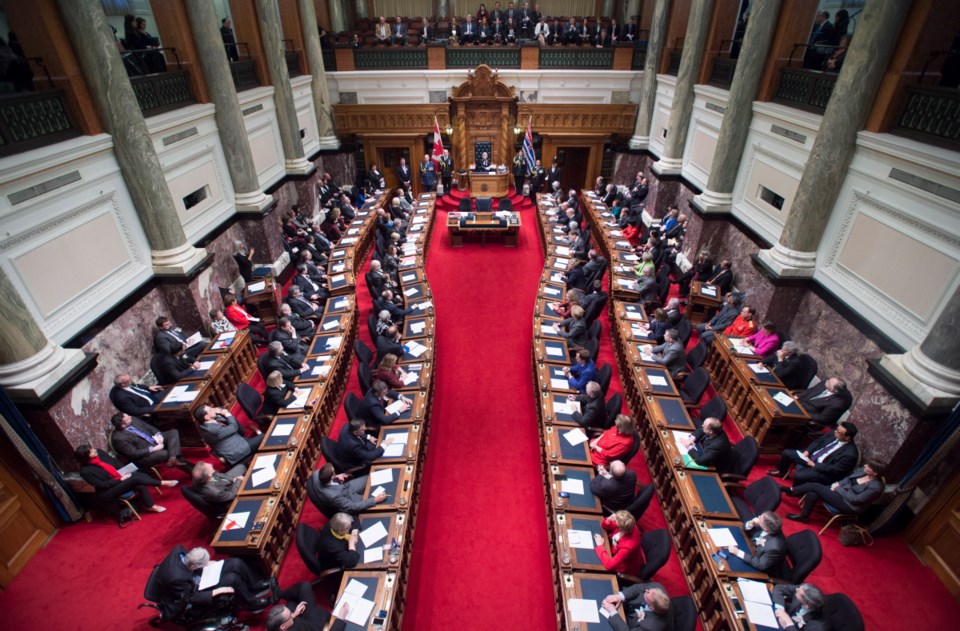The B.C. government will continue to pray before the start of each sitting of the legislature, but it has changed the name of the practice to include non-religious reflections.
A group representing humanists, atheists, agnostics and non-religious people in B.C. called the updated terminology “a step forward,” but says it doesn’t go far enough.
“While an undoubtedly well-meaning amendment, we ultimately want to see prayers removed from the standing orders altogether,” said Ranil Prasad, a board member of the B.C. Humanist Association. “Government prayers are not inclusive of the overwhelming majority of British Columbians who are not religious, they violate the principle of separation of church and state, and, frankly, they are a waste of both taxpayer money and time in the chamber.”
Each day that the house sits, at the start of business, an MLA rises in the legislature to deliver a prayer. The person who speaks is welcome to say a prayer from their faith or spiritual belief, or to offer some kind of secular reflection.
In an analysis that was released this fall, the B.C. Humanist Association found that of the hundreds of prayers delivered by MLAs and guests at the beginning of each legislative sitting between Oct. 6, 2003, and Feb. 12, 2019, they have became more sectarian, longer and more Christian.
In the standing orders, the official rules that govern the chamber, the daily routine is called “Prayers,” but on Thursday, the final sitting of this legislative session, house leader Mike Farnworth put forward a motion that the name be changed to “Prayers and Reflections.”
The motion was unanimously approved.



